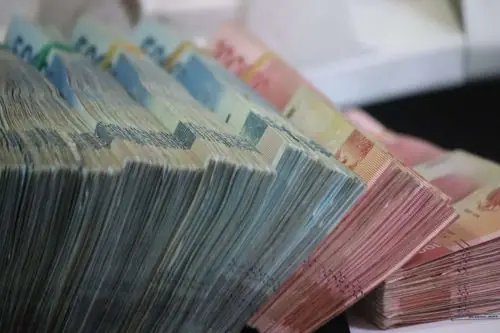

Some Call it Greed
Does greed cause inflation? You have probably come across some variation of this statement, “Greedy corporations charging higher prices causes inflation”. But, is it true? Is greed the root cause of inflation?
So, does greed cause inflation? The argument basically goes like this: The firm sees rising prices and takes that as an opportunity to raise prices. Let’s examine if this argument makes sense. Generally, firms will charge the profit-maximizing price at all points in time. If they could just raise prices to make more money, they would have already done so.
The reason that they raise prices during inflation is that their costs are going up. Firms, in general, are already charging the profit-maximizing price. The increase in prices is not because they suddenly became more greedy. It is because their costs increased and they must pass these additional costs along to the consumer to maintain their profitability. This is not so much an opportunity for the firm as it is a challenge to maintain its profitability.
Does greed cause inflation? – more justifications
Some may argue that if profit margins increase faster than the rate of inflation, it is evidence that firms are being greedy and taking advantage of the situation. Such arguments overlook the fact that firms typically grow over time. In a well functioning economy where per capita real incomes are rising, people can spend more on the items that they need and desire. As such, more money is spent at firms and their profits will naturally rise. Even if the economy is not growing on a per capita basis, if the population the firm serves is growing, their profits would naturally rise as they serve more customers. Growing profits are a sign of a growing economy, not increasing greed.
Is it really believable that when inflation was contained, firms were less greedy? Did something change and they became more greedy? The greed of the firm did not change. Attributing a change in inflation to an unchanging level of self-interest is misguided. The root of inflation lies elsewhere.
Greed is not the source of inflation. However, as firms raise their prices, these prices feed into other firms as input prices. This issue can compound upon itself. Inputs, including wages, can create a pricing spiral. This dynamic makes combating inflation all the more tricky. This wage and input prices spiral can continue to feed inflation and exacerbate the problem, but it is not the root cause.
The root cause of inflation lies elsewhere. The bulk of economic debate and policy regarding inflation should focus on such root causes.
Stay current with the relationship between money supply and inflation.
Limitation: This article is brief in nature and assumes a competitive market environment. In cases where a competitive market does not exist, variations to the behavior above many exist.
Another perspective
Question: Is inflation caused by greed?
Answer by: Ed Dolan, Senior Fellow at the Niskanen Center and creator and publisher of Ed Dolan’s Econ Blog.
No. At least not if we define “greed” to mean more than ordinary economic self-interest. The everyday meaning of “greed” – a meaning that goes back at least to Aristotle – is a matter of taking “more than one’s fair share.” We might say that “greed” is “self-interest plus.”
Suppose you run a coffee shop that charges a price for a cup of brewed coffee that we all agree is fair. Suppose the world price of coffee beans goes up because, say, of war in Ethiopia. No one would say you are “greedy” if you raise your price per cup by enough to preserve your profit margin. It is true that your higher price does make a minute contribution to inflation, but we cannot blame that on greed.
Suppose instead, though, that you want more than a fair profit. You talk all the coffee shops in town into forming a cartel. Your cartel doubles the price of a cup of coffee, and profits soar. We could plausibly call _that_ inflation caused by greed.
Still, beyond a point, even the cartel’s price will hit a level where any further increase will cause so many people to switch to coffee brewed at home that profits will actually fall. At that point – call it the point of maximum greed – the price stabilizes. Yes, it is high, but inflation means rising prices, not prices that are high but stable.
The bottom line: Theoretically, an increase in greed could cause inflation. But as long as greed remains at a steady level, whether high or low, you cannot say it is a cause of inflation.
Mind blown? If you learned something or found it interesting, you can easily share:


